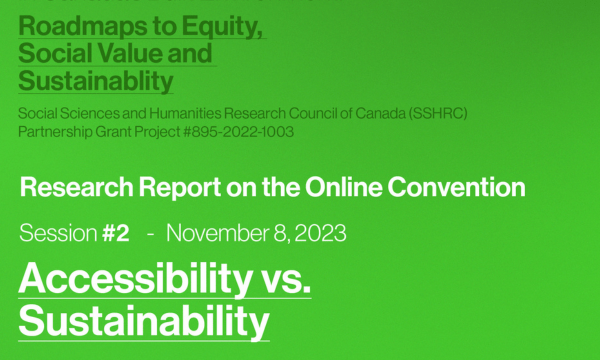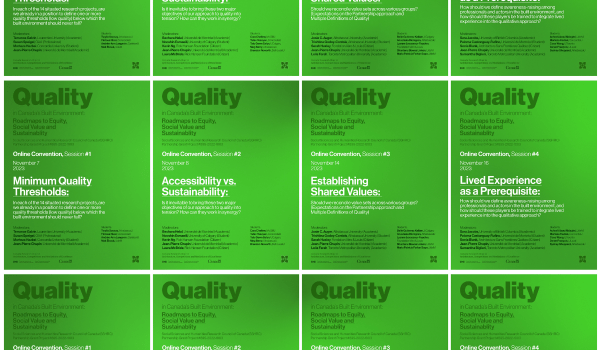Building on the momentum from the past three years, the SSHRC-funded National Quality Partnership organized the Toronto 2025 National Convention on Quality, held from April 30 to May 2, 2025. One of the main objectives of the convention was to reflect on a key question: Which aspects of the existing roadmaps could form part of a national quality strategy? As part of this National Quality Strategy development process, the Toronto Convention featured two series of roundtable discussions (April 30 and May 1) alongside multiple plenary sessions for examining a first series of quality measures together. Another core goal was to share knowledge among diverse stakeholders about international initiatives for integrating and enhancing quality in the built environment, and to figure out Canada’s current situation. In this context, international expert Oliver Martin actively participated in both roundtable series and presented in the first plenary session of Day 2 titled: “Implementing a Strategy for Quality in Europe”, offering his insights on quality in the built environment within the European context.
Oliver Martin serves as Chair of the Davos Baukultur Alliance, launched in 2023, and holds both a Master’s degree and a PhD in Architecture from the Swiss Federal Institute of Technology Zurich. In 2012, he joined the Executive Board of the Swiss Federal Office of Culture as Head of the Baukultur Section. Alongside this role, he was a member of the Swiss delegation to the UNESCO World Heritage Committee from 2010 to 2013 and served on the ICCROM Council from 2013 to 2021, including four years as its president. Martin is one of the principal authors and leading advocates of the Baukultur concept and the Davos Declaration, adopted by the European Ministers of Culture in 2018, which has since become a benchmark for building and planning policies across Europe and beyond.
In his compelling presentation on Europe’s evolving approach to architectural and planning through the lens of Baukultur, Oliver Martin outlined the initiatives undertaken in Switzerland and across Europe and the motivations behind them. He began by introducing Baukultur and stated that Baukultur, a German word, is a holistic, multi-disciplinary approach to shaping the built environment that considers not only how, where, and what we build but also what we choose not to build. Addressing the current state of the built environment in Europe, Martin noted that quality is lacking even in wealthy municipalities. While highlighting the Davos Declaration 2018, he further discoursed that the lack of quality is largely driven by economic pressures and rapid development. Davos Declaration 2018 emphasized that culture must be central to shaping the built environment, with a strong focus on meeting human needs, including emotional and psychological well-being. Later, he presented the Davos Baukultur Quality System (DBQS), a framework consisting of eight equally weighted criteria: governance, functionality, environment, economy, sense of place, diversity, context, and beauty. This DBQS is not a manual rather a shared language for assessing quality from a single building to a cityscape.
In the latter part, Oliver Martin talked about how Switzerland adopted Baukultur principles through a federal strategy in 2020, involving 15 government agencies. This federal action plan comprised 41 measures, ranging from research initiatives to public awareness campaigns. Consequently Baukultur Alliance was launched in 2023 that bringing together over 90 partners, including the World Economic Forum. While figuring out next steps, he highlighted some ‘Pioneering Places’ such as Geneva and Kuala Lumpur, which are committed to adopting quality-led planning and development, with Montreal noted as a potential future participant. Oliver Martin emphasized, this movement is ultimately about creating environments that are inclusive, resilient, and meaningful, where joy and cultural richness are essential elements.
This whole plenary session, moderated by Prof. Jean-Pierre Chupin, offered valuable insights into practices from around the world and helped to shape a vision for sharing practices for quality-led planning and development across Canada.
You can watch the 46 minutes presentation from Oliver Martin in the video below:



